De Amerikaanse dichter en letterkundige Edward Hirsch werd geboren op 20 januari 1950 in Chicago. Zie ook alle tags voor Edward Hirsch op dit blog.
After a Long Insomniac Night
I walked down to the sea in the early morning
after a long insomniac night.
I climbed over the giant gull-colored rocks
and moved past the trees,
tall dancers stretching their limbs
and warming up in the blue light.
I entered the salty water, a penitent
whose body was stained,
and swam toward a red star rising
in the east—regal, purple-robed.
One shore disappeared behind me
and another beckoned.
I confess
that I forgot the person I had been
as easily as the clouds drifting overhead.
My hands parted the water.
The wind pressed at my back, wings
and my soul floated over the whitecapped waves.
Charades
We waited on two sides of the subway tracks:
you were riding uptown and I was heading downtown
to a different apartment, after all these years.
We were almost paralyzed, as anxious
travelers surged around us in waves,
and then you started to pantomime.
First, you touched your right eye.
Then you palmed your left knee.
Finally, you pointed at me.
I made of a sign of understanding
back to you but the train suddenly roared
into the station and you disappeared.
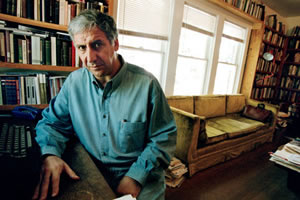
De Turkse schrijver Nazim Hikmet werd op 20 januari 1902 geboren in Thessaloniki. Zie ook alle tags voor Nazim Hikmet op dit blog.
Das schönste Meer
Das schönste Meer:
es ist das noch unbefahrene…
Das schönste Kind:
es ist das noch nicht erwachsene.
Unsere schönsten Tage:
es sind die noch nicht gelebten.
Das allerschönste Wort was ich Dir
sagen wollte:
es ist das noch nicht ausgesprochene Wort…
Sehnsucht
Heimkehren
will ich zum Meer,
hineintauchen in den blauen Wasserspiegel,
ins Meer!
Heimkehren will ich zum Meer!
Die Schiffe streben zum Horizont,
hell und weit,
ihre straffen Segel sind nicht gebläht vom Leid.
Ich wäre glücklich,
könnt ich einmal auf einem solchen Schiff Wache tun.
Da uns der Tod eines Tages gewiss ist,
nun so möcht ich wie ein in der Flut versickerndes Licht
verlöschen im Meer.
Heimkehren will ich zum Meer!
Heimkehren zum Meer!
Vertaald door Rana Talu
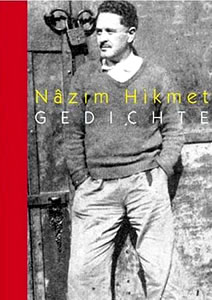
De Duitse (Luxemburgse) schrijver Guy Helminger werd geboren op 20 januari 1963 in Esch-sur-Alzette. Zie ook alle tags voor Guy Helminger op dit blog.
Uit: Neubrasilien
„Am frühen Abend des 6. April 1828, zwei Wochen bevor das Schiff ablegen sollte, hing über der Gemeinde Wahl eine Nebelschärpe, die nicht unbedingt dicht zu nennen war, sich aber breit von den Strohdächern fallen ließ und bis zu jener Höhe hin verlief, von der aus Napoleon mehr als zwanzig Jahre zuvor u¨ber das ganze Land geblickt hatte. Josette Meier hingegen sah in der anbrechenden Dunkelheit nur wenige Meter weit, dann schoben sich die Felder und Äcker hinter einen Paravent aus Dunst, der viel, aber nicht alles verdeckte. Solche Stellwände benutzten einige Frauen in der Stadt, hatte ihr Bruder erzählt, obwohl er erst einmal dort gewesen war. Sie selbst war noch nie nach Luxemburg-Stadt gekommen, und so wie die Dinge standen, würde sie die Festung auch in Zukunft nicht sehen.Ihre Absätze klopften auf den festgetretenen Pfad. Der Wind wehte kühl und feucht vom Wald her, Josettes Gesicht aber glühte unter der weißen Haube.”
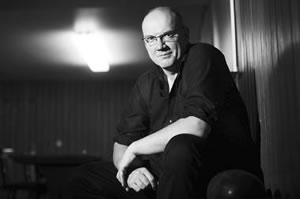
De Zwitserse dichter en schrijver Eugen Gomringer werd op 20 januari 1925 geboren in Cachuela Esperanza, Bolivia. Zie ook alle tags voor Eugen Gomringer op dit blog.
ping pong
ping pong ping
pong ping pong
ping pong.
du blau
du rot
du gelb
du schwarz
du weiss
du
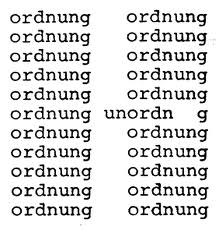
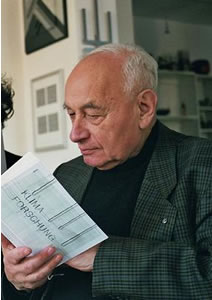
Eugen Gomringer (Cachuela Esperanza, 20 januari 1925)
De Israëlische schrijfster, journaliste en literatuurwetenschapster Batya Gur werd geboren op 20 januari 1947 in Tel Aviv. Zie ook alle tags voor Batya Gur op dit blog.
Uit: Murder Duet
„As he put the compact disc into the player and pressed the button, it seemed to Michael Ohayon that he heard a tiny cry. It hovered in the air and went away. He didn’t pay too much attention to it, but went on standing where he was, next to the bookcase, looking at but not yet actually reading the liner notes accompanying the recording. He wondered absently whether to shatter, with the ominous opening chord for full orchestra, with pounding timpani, the holiday-eve calm. It was the twilight hour at summer’s end, when the air was beginning to cool and clear. He reflected that it was a moot point whether a man called on music to wake sleeping worlds within him. Or whether he sought in it a great echo for his conscious feeling, or listened to it in order to create a particular mood when he himself was steeped in fog and emptiness, when it only seemed that this holiday-eve calm embraced him, too. If that was so, he thought, he wouldn’t have chosen this particular work, which was worlds removed from the holiday-eve quiet in Jerusalem.
The city had changed greatly since he had come here, as a boy to attend a boarding school for gifted pupils. He had seen it transformed from a closed, withdrawn, austere, provincial place into a city pretending to be a metropolis. Its narrow streets were jammed with lines of cars, their impatient drivers shouting and impotently shaking their fists. Yet he was moved time and again to see how even now, on every holiday eve (especially Rosh Hashanah, Passover, and Shavuoth, but also on Friday evenings and if only for a few hours, until darkness fell), sudden peace and quiet would reign, utter calm after all the commotion and vociferousness.“
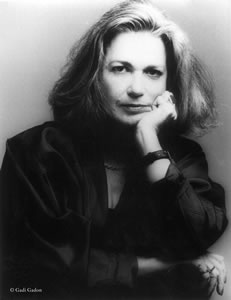
Zie voor nog meer schrijvers van de 20e januari ook mijn vorige blog van vandaag en eveneens mijn eerste blog van vandaag.
